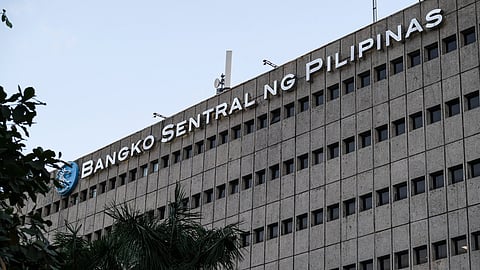
- NEWS
- the EDIT
- COMMENTARY
- BUSINESS
- LIFE
- SHOW
- ACTION
- GLOBAL GOALS
- SNAPS
- DYARYO TIRADA
- MORE

Global financial transactions or balance of payments (BOP) showed a $2-billion deficit as the government paid more foreign loans and businesses acquired more imported goods, the Bangko Sentral ng Pilipinas (BSP) reported Monday.
The BSP previously said the country posted a surplus of $1.2 billion a year ago and a $3-billion surplus last February.
The Bureau of the Treasury reported that the government’s external debt had already grown by 3.4 percent to P5.41 trillion as of end-February compared to January.
“The deficit reflected the government’s drawdowns on its foreign currency deposits with the BSP to meet its external debt obligations, as well as the BSP’s net foreign exchange operations,” the Central Bank said.
In addition, payments for imported goods surpassed income from Philippine exports, resulting in a higher trade deficit of $8.3 billion from $7.9 billion between January and February.
Thus, the country’s balance of payments for the first three months turned into a $3 billion deficit from a surplus of $238 million in the same period last year.
Given the country’s lower foreign currency funds, its gross international reserves also declined to $106.7 billion as of end-March from $107.4 billion as of end-February.
Finance Secretary Ralph Recto said the government aims to borrow less from external sources, at 20 percent of the total loan program.
“I think our balance for the year is minimal. Right now, it doesn’t appear that we should tap international markets further for US or Samurai bonds,” he said.
Jonathan Ravelas, senior adviser at Reyes Tacandong and Co., said the peso could remain resilient at P57.50 per $1 or lower as investors look for opportunities in economies outside the United States amid Trump’s tariffs.
This will translate into lower government payments for external debt. The Treasury said the government saved P34.48 billion in February as the peso appreciated P57.99/$1 from P58.375/$1 in January.
“The greenback recently came under pressure after US President Trump announced harsher-than-expected tariffs against US trading partners,” Ravelas said.
